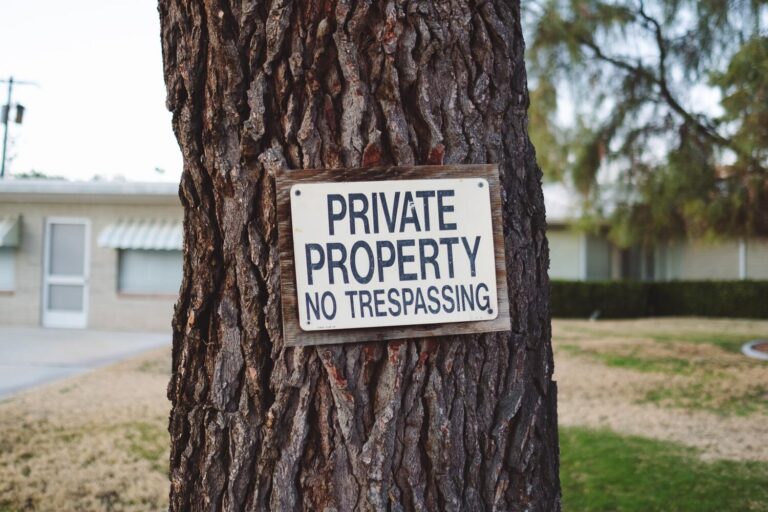Can a Landlord Sue for Damages without a Lease

Can a landlord sue for damages without a lease? It always proves beneficial to be aware of your duties and rights when dealing with the buying and selling of property. Tenants and landlords have a strained dynamic. If you are unfamiliar with your responsibilities/liberties, people can easily take advantage of your oblivion to twist the situation against you.
A lease is a contractual agreement between two parties where the donor party allows the receiver to use its property for a specific period in return for systematic compensation, usually in the form of money. This article beholds all the information regarding the rights of landlords in this regard.
Can a Landlord Sue for Damages Without a Lease?
Even though leases are a significant part of the property trading circle, some states allow lease-free agreements based solely on verbal consensus. Hence, can the tenant be sued if the property can be rented without a lease?
In case of damage to the property or modifications without the landlord’s knowledge, the owner can sue the tenant. He/she can even choose to deduct back rent and damage costs. Even though it will be tricky to prove in court, dues and receipts can even help the court charge the tenant with the penalty even in the absence of a lease.
What are the Different Types of Lease Agreements?
There are various formats of lease agreements, depending on the lessor’s inclinations. The burden can be on the owner as well as the lessee. Here are some types of lease agreements common in the market trends:

Absolute net lease
The tenants are responsible for paying all the expenses associated with the property, including maintenance and billings. On the brighter side, the monthly rent is relatively low.
Triple net lease
The NNN lease agreements entail the owner passing insurance, maintenance, and taxes down to the tenant in the name of rental excesses, commonly referred to as TICAM. The tenant is also responsible for the janitorial and maintenance expenses. But he can audit the property’s costs.
Modified gross lease
In this type, the landlord covers all the costs like common maintenance, taxes, bills, etc. On the other hand, janitorial expenses and interior maintenance are shouldered by the tenant.
Full-service lease
This is the complete reversal of absolute net lease, and the owner manages almost all the costs of the property. Consequently, rents are quite high.
How Does the Law Treat Tenants Without a Lease?
Even if the tenant has not signed a lease, certain factors determine tenancy:
- Tenancy at will: verbal agreement to last for more than a year
- Rent payment after the expiration of the least period
- Someone is sharing utility costs and bills with the actual tenant.
Even if you don’t have a lease, you may still be liable for breach of contract or other legal obligations if you think the law defines you as a “tenant” according to the criteria listed above.
How to Get out of a Lease without incurring any Liability?
Tenants can usually get out of lease agreements once the lease payment is up. If not, the law states that the tenant must keep paying the landlord until the lease is up or the owner re-rents the property.
Landlord Rights with No Contract
Even though it is not considered smart to enter an agreement without a proper contract binding the two parties legally, verbal commitments put people under the same statutory rules and regulations. However, they are a bit more vulnerable to violation.
Summons and Warrant for Unpaid Rent and Repairs
A landlord or a lawyer can write a warrant for a tenancy based on a specific type of tenancy. The most common are;
- Warrant for seizing goods requested by the landlord to recover unpaid rent arrears.
- When a landlord files for a warrant of possession in court, the date on which the matter is still pending is the date on which the warrant is issued.
Consequently, the court sends you an eviction letter.
Landlord Liability for Failure to Maintain Property or Follow Rules
In this example, the landlord may get in trouble if his negligence toward the tenant’s demands exceeds the limit or if it poses a direct or indirect threat to the life (if damaged property is involved).
It is also possible for a sound hazard or a lack of water to be considered a continual nuisance. Delayed maintenance may also be one of the issues.
Lack of proper etiquette like nagging for rent or misbehaviour towards the tenant can also be the driving force of the lease agreement’s breaking, allowing the tenant to walk away without paying a dime.
If the landlord forces the tenant out of his property, he is not liable to continue the rent payment.
Consequences of Breaking a Lease Agreement Without Just Cause
This can lead the tenant to a compromising position because it is the right of the owner to receive regular rent until the lease is over or the landlord finds new tenants. The tenant may have to continue paying even if he is not using the property, or he can be fined with a heavy penalty if the landlord decides to sue him.
When can a Landlord Sue for Damages without a Lease?
The common practice is to deduct the outstanding rental payment or other charges straight from the security. Still, a wiser and acceptable approach should be proven through receipts or other evidence. Besides, the following cases can happen:
- If recurrent warnings have been delivered to the tenant and the landlord has a record.
- If the landlord has not been aware of the modifications to his property.
- If his property has been modified even when he disagreed.
- Outstanding rent
- When the tenant moves out before the lease period is over
Exceptions to the Rule
There are a few limitations to the rule, which include;
- If the landlord was aware of the changes to the property made by the tenant.
- When the landlord was informed about the damages or issues within the property by the tenant on time.
- When there is a life and death situation involved that caused the damage.
- Without a warrant.
How much can a Landlord sue for without a Lease?
This depends on the causes and the state’s ongoing law situation. A landlord can sue the tenant for unpaid rent or any property damages without a lease based on the verbal agreement they may have at the start of the business.
Remedies for Breaching Lease Conditions
Landlords can opt for several actions or remedies in case of tenant non-compliance or breach of lease conditions. Have a look at the info graph;

Frequently Asked Questions
Are there any remedies available for tenants when a landlord is at fault?
Though the remedy options are fewer in number than the ones available for the landlord. These include;
- Filing a lawsuit against the landlord.
- Termination of lease or constructive eviction.
- Cure rights of the tenant.
Can a landlord recover his/her property by force?
Under self-help remedies, common law allows a landlord to recover his/her property rent or damage, but most estates retrain or do not encourage this practice to maintain peace.
How to find good tenants?
- Run a background check.
- Have a look at the employment history.
- Meet in person.
- Request personal references.
- The business.
Conclusion
With this article, we intended to break down the conspicuous complex dealings in the re-estate business by touching upon the basic yet critical junctures and explaining them to deliver a better understanding and knowledge of the rules, rights, and laws relevant to the leasing business.
Having acquaintance with such small details will help you make better decisions in this regard because we tend to fall in situations where lack of knowledge and cluelessness often prove risky.
Personal Opinion
Living in a rental house, apartment, or unit with or without a contract (lease) has its stakes. To be able to face potential future harm, it’s important to have a written verdict in the form of a contract and to know what’s in it. A landlord and tenant must go through the important terms and conditions before shaking hands on the deal in black and white.
References:






